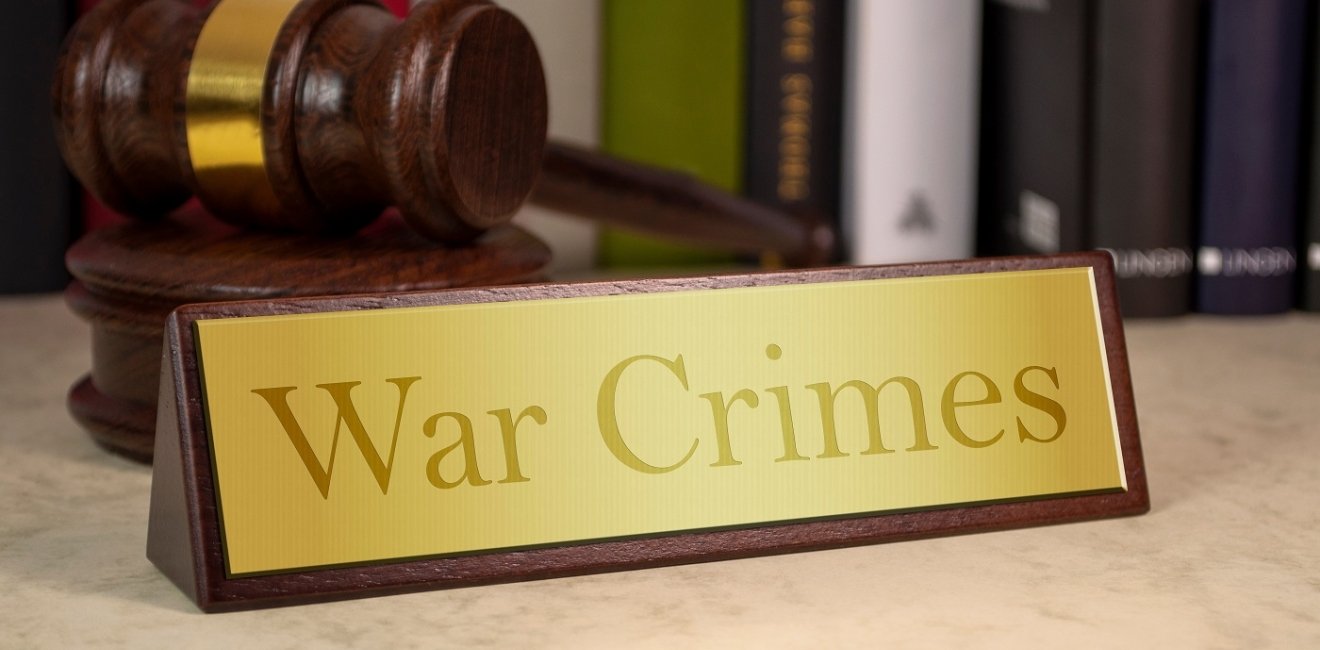
A blog of the Kennan Institute
Almost a quarter of a century has passed since Ukraine signed the Rome Statute. But the ratification took place just a few weeks ago. Such a long interval raises questions, especially since Russian aggression against Ukraine has been going on for more than 10 years. Why did Ukraine wait so long to ratify the International Criminal Court (ICC) code? Why did it ratify it now? What will be the consequences of this political step?
The answer to the first question is directly related to the peculiarities of the Ukrainian political system. It is built so that any major political player can block any decision. Such players include, for example, oligarchic groups and groups influencing the presidents of Ukraine. Very often, decisions are blocked simply because some political players neither understand what is being discussed nor try to figure it out. Such “blocking by incompetence” is carried out preventively, with the thinking, “what if this decision threatens us in some way?” This is why any reform in Ukraine is an extremely difficult undertaking. There is always some influential political player who does not understand why the reform is necessary.
The Rome Statute was hard to understand for the Ukrainian political elite. Former President Leonid Kuchma first signed it in 2000, and a year later appealed to the Constitutional Court on the inconsistency of this international treaty with the Constitution of Ukraine. The grounds for recognizing the unconstitutionality of the Rome Statute were very shaky, but the appeal worked and blocked ratification for a long time.
After the annexation of Crimea and the outbreak of war in eastern Ukraine in 2014, ratifying the Rome Statute seemed to become more relevant. The Russian army and its proxies have been committing war crimes and crimes against humanity since the first days of the war. But even under such conditions, the Ukrainian government did not dare to ratify. Ukraine took a different path and applied to the ICC with a statement recognizing the jurisdiction of this court. This gave the ICC the opportunity to investigate crimes committed on the territory of Ukraine. But this was not ratification and did not lead to Ukraine's full membership in the ICC.
Ukrainian politicians said that ratification threatened its military. They cited as an example the statements that Russia filed with the ICC against the Georgian military following the invasion of Georgia in 2008. The main idea of the Ukrainian government in public comments regarding the Rome Statute was to postpone ratification until the end of the war. One had the impression that Ukrainian opponents of ratification had not read the Rome Statute. It provides for punishment for large-scale, systematic, deliberate actions. Privates and sergeants are not tried under the Rome Statute. Those who formulate and implement criminal state policy are tried. Moreover, the ICC does not interfere in the affairs of a state if it investigates war crimes and punishes its own criminals.
Ukraine did not pursue a criminal state policy and investigated the crimes of its military. ICC investigations confirm the absence of large-scale, systematic, and deliberate war crimes on the part of Ukraine. After the start of the war, the ICC issued arrest warrants for six Russians and did not demand the arrest of a single Ukrainian. But the Ukrainian elite was still afraid of ratification, even though, following Russia's invasion of Georgia, the ICC demanded that only Russian proxies from South Ossetia be held accountable. Ultimately, the “Georgian bogeyman” that was used to scare the Ukrainian military did not work.
Three objective reasons and the human factor finally helped ratify the Rome Statute. The first reason: ratification is a mandatory condition for Ukraine's European integration. Article 8 of the Association Agreement between the European Union and Ukraine provides for the ratification of the Rome Statute. Integration into Europe is not just a goal of Ukraine enshrined in its constitution, and it is not just a dream for which Ukrainians went to the barricades in 2013–14 to defend their European choice. European integration for the country that finds itself in a bloody, destructive war with Russia is a strategy for survival. Many positive changes occur only under the influence of European integration.
The second reason is the new opportunities that ratification will give Ukraine. The ICC is already operating in its territory. But Ukraine does not participate in its activities. For example, it cannot propose a Ukrainian judge or prosecutor as a candidate for the ICC. There is also a financial aspect, although that is not the most important consideration. After ratification, Ukrainians received simplified access to the court's target monetary fund. This fund is intended to pay compensation to victims of war crimes.
The third reason is the presidential majority in parliament. The government faction is not monolithic. However, in special cases, when it is necessary to make the most important decisions, it can be consolidated. And the president made the decision to ratify.
In post-Soviet Ukraine, however, objective factors do not play a major role in decision-making. One crucial factor in ratification was the appointment of Iryna Mudra to the post of deputy head of the presidential office in March 2024. Mudra is an active supporter of ratification. Her previous position as deputy minister of justice in the Ukrainian government was largely technical. But the deputy head of the presidential office can influence political decision-making.
Ukrainian human rights organizations have been advocating for the idea of ratifying the Rome Statute for many years. The Center for Civil Liberties—the first and only Ukrainian Nobel laureate—actively promoted the idea of ratification. The pressure in one direction, from the presidential office, and from the other, from human rights activists, led to an important result in just four months.
Ratification of the Rome Statute is not the last page in this story. Lawmakers who were nervous about the “Georgian bogeyman” won a note in the law on ratification that says that in the next seven years the ICC cannot consider cases against Ukrainian military personnel suspected of committing war crimes. There was no need for such a public display of fear, but it became a condition for compromise between supporters and opponents of ratification.
Much work is needed still to implement the norms of the Rome Statute into Ukrainian legislation. The Criminal Code of Ukraine does not contain all the necessary elements about war crimes and crimes against humanity. Because the country had not fought since gaining independence, there was no need to lay out how war-related crimes would be treated. For example, the criminal code does not describe liability for crimes that constitute a violation of customary, rather than treaty, international humanitarian law. This significantly narrows the list of crimes that can be tried in wartime.
Human rights activists rightly criticize the law that ratified the Rome Statute for its incompleteness. This law does not actually address issues around changing Ukrainian legislation, which are inevitable after ratification. Ukrainian civil society will once again have to prove to the authorities the importance of implementing international law in their country's legislation. But I am sure it will succeed. The history of the ratification of the Rome Statute has confirmed that it is civil society, not the government, that is the main guarantee of the survival and development of Ukraine.
The opinions expressed in this article are those solely of the author and do not reflect the views of the Kennan Institute.
Author


Kennan Institute
After more than 50 years as a vital part of the Wilson Center legacy, the Kennan Institute has become an independent think tank. You can find the current website for the Kennan Institute at kennaninstitute.org. Please look for future announcements about partnership activities between the Wilson Center and the Kennan Institute at Wilson Center Press Room. The Wilson Center is proud of its historic connection to the Kennan Institute and looks forward to supporting its activities as an independent center of knowledge. The Kennan Institute is committed to improving American understanding of Russia, Ukraine, Central Asia, the South Caucasus, and the surrounding region through research and exchange. Read more

Explore More in Focus Ukraine
Browse Focus Ukraine
Talking to the Dead to Heal the Living

Ukrainian Issue in Polish Elections


